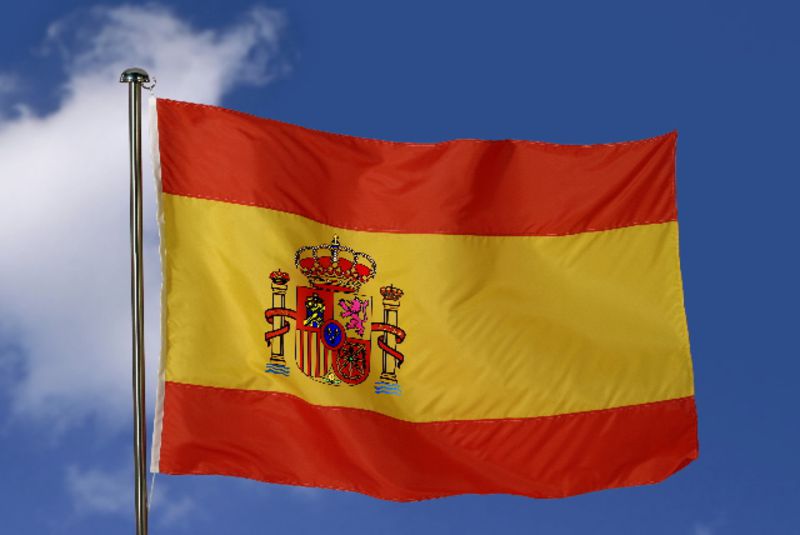The eurozone is preparing a loan for Greece
Adelina Marini, April 12, 2010
 There was a feeling of a hurry during the Sunday video-meeting of the Eurogroup finance ministers, during which they agreed Greece to receive bilateral loans from euro area members worth 30 bn euro for the first year of a possible 3-year rescue plan. Even more puzzling was this against the backdrop of the firm statements that Greece had still not asked for financial assistance, and also the fact that the meeting took place in a very difficult situation for Poland.
There was a feeling of a hurry during the Sunday video-meeting of the Eurogroup finance ministers, during which they agreed Greece to receive bilateral loans from euro area members worth 30 bn euro for the first year of a possible 3-year rescue plan. Even more puzzling was this against the backdrop of the firm statements that Greece had still not asked for financial assistance, and also the fact that the meeting took place in a very difficult situation for Poland.
According to the Eurogroup's leader Jean-Claude Juncker and the Commissioner for Monetary Affairs Olli Rehn, the aim of the video-meeting was to work out the details of the mechanism, agreed by EU leaders at their Spring European Council in Brussels in the end of March. Currently, they said at a press conference on Sunday afternoon, in case of a need the money could be given very quickly.
A possible reason for the haste is the bad moods of the financial markets, which forced eurozone finance ministers to agree urgently on the details of the rescue mechanism for Greece and, therefore, to rescue the entire monetary union. The European financial markets again fear because of the situation of the Greek economy. This led to a sharp drop of the prices of the Greek debt bonds. Markets' reactions are due to a large extent to investors' concerns whether Greece would be able to pay its debts, given the hard situation of its public finances. Athens has nearly 300 bn euro in debts and its budgetary deficit reached 12.7% of its GDP. The ambition of George Papandreou's government is to reduce the deficit by 4% in 2010.
The president of the Eurogroup, a prime minister and minister of finance of Luxembourg Jean-Claude Juncker again stated on April 11th that Greece had still not asked for help. Mr Juncker added that he spoke several times last week on the phone with his Greek counterpart Papandreou but felt not even a hint of a need for help.
This 30 bn euro is the overall amount of bilateral loan which all 15 euro partners of Greece will give to the country in the first year. It is still not clear what the contribution of the International Monetary Fund will be, which is supposed to add up with one third to eurozone's bilateral loans, according to the rescue mechanism. As of today the European Commission starts work together with the IMF, the Greek government and the European Central Bank on the details. Separately from IMF's contribution, what will additionally be negotiated is a programme of measures as well as the conditionality for the loans. So far what is known is that eurozone member states will give loans at a price of approximately 5% interest rate.
As written in Eurogroup leaders' decision, variable-rate loans will be based on 3- month Euribor. Fixed-rate loans will be based upon the rates corresponding to Euribor swap rates for the relevant maturities. The IMF pricing formula will be used to calculate the price of the loan.
month Euribor. Fixed-rate loans will be based upon the rates corresponding to Euribor swap rates for the relevant maturities. The IMF pricing formula will be used to calculate the price of the loan.
Later this week the EU ministers of finance will gather for an informal council (Ecofin) in Madrid. The main issue, as can be expected, will be the latest developments of the budgetary crisis in Greece. At this meeting for the first time will be discussed the radical change of the financial situation of Bulgaria, after the government announced that it was revising its data for 2009, the conservative assessment of which would be for 3.7% budgetary deficit.
 | © European Commission- Audiovisual Service
| © European Commission- Audiovisual Service | © Eropean Commisson-Audiovisual Service
| © Eropean Commisson-Audiovisual Service Klaus Regling | © Council of the EU
Klaus Regling | © Council of the EU Mario Centeno | © Council of the EU
Mario Centeno | © Council of the EU Mario Centeno | © Council of the EU
Mario Centeno | © Council of the EU Angela Merkel, Emmanuel Macron | © Council of the EU
Angela Merkel, Emmanuel Macron | © Council of the EU Benoit Coeure | © Council of the EU
Benoit Coeure | © Council of the EU Pierre Moscovici | © Council of the EU
Pierre Moscovici | © Council of the EU | © euinside
| © euinside